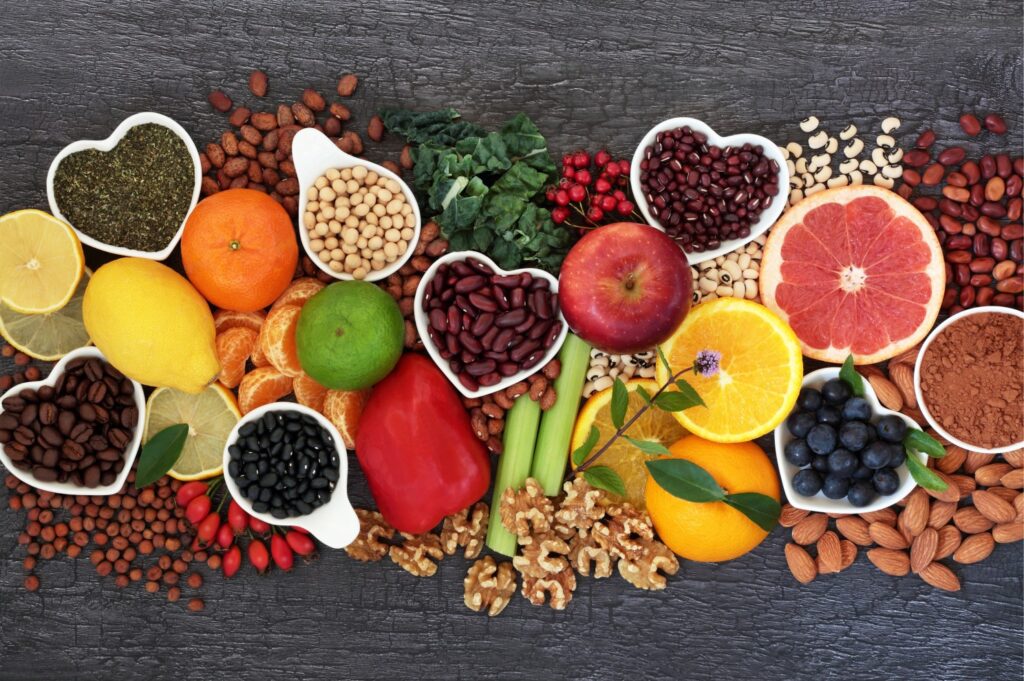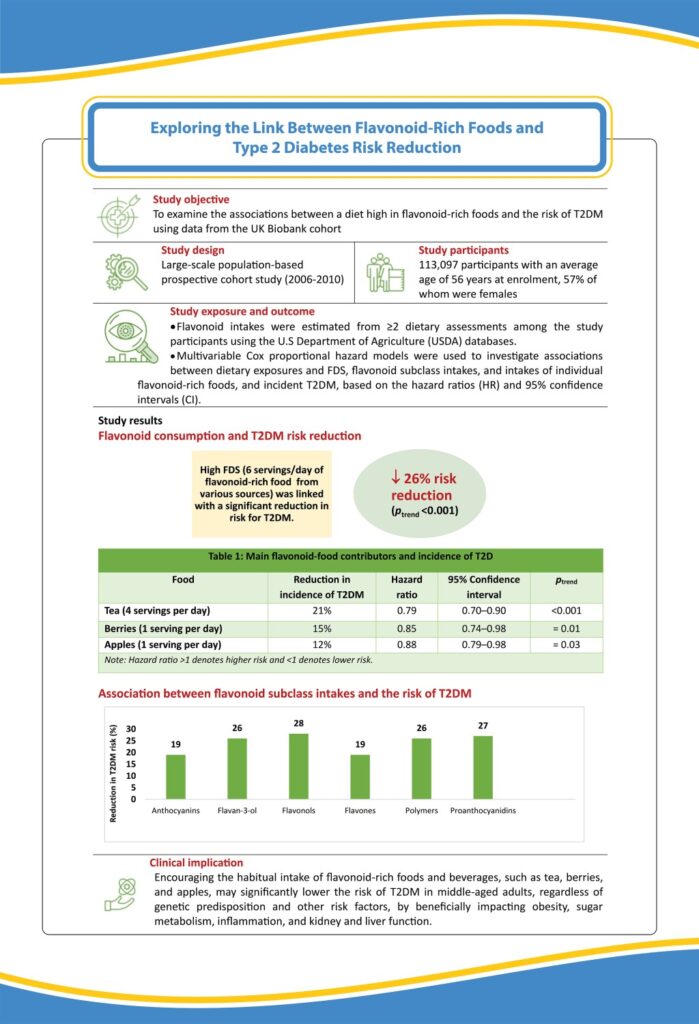
Type 2 diabetes mellitus (T2DM), affecting 415 million people and causing over 4 million deaths annually, significantly increases the risk of cardiovascular disease, dementia, and cancer, and imposes a substantial economic burden. Type 2 diabetes is largely preventable through dietary changes, particularly healthy plant-based diets that mitigate the major contributing factors of overweight and obesity.
Flavonoids are a class of polyphenolic compounds found in various fruits, vegetables, dark chocolate, tea, and red wine. Flavonoid-rich diets may play a role in preventing T2DM by improving insulin sensitivity, reducing insulin resistance, and improving lipid profiles.
Given that flavonoids are typically consumed as part of a diet, a study by Thompson et al., used a “Flavodiet Score” (FDS) to represent a flavonoid-rich diet and its association with T2DM risk in a large population-based cohort, the UK Biobank. Over a 12-year period, participants with the highest flavonoid intake had a 26% lower risk of T2DM (see Graphic). The protective effects are likely due to improvements in body fatness, inflammation, and kidney and liver functions.

(Source: Thompson AS, Jennings A, Bondonno NP, Tresserra-Rimbau A, Parmenter BH, Hill C, Perez-Cornago A, Kühn T, Cassidy A. Higher habitual intakes of flavonoids and flavonoid-rich foods are associated with a lower incidence of type 2 diabetes in the UK Biobank cohort. Nutrition & Diabetes. 2024. 22;14(1):32. https://doi.org/10.1038/s41387-024-00288-0)
